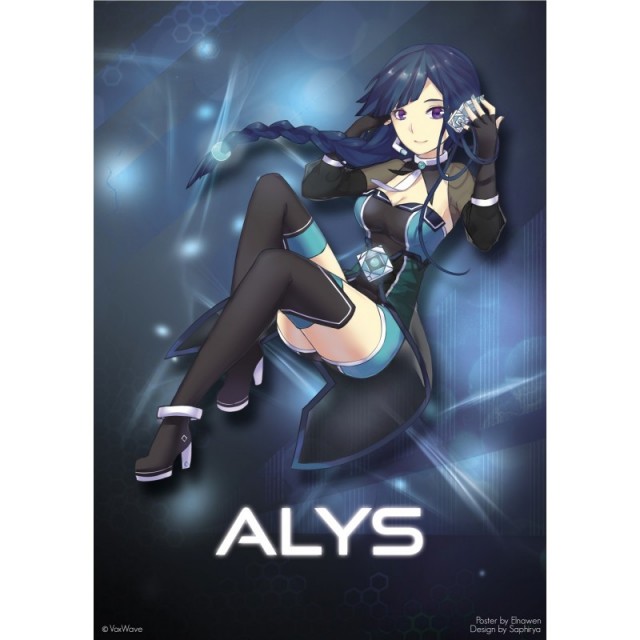The French-Canadian company Plogue has entered the vocal synthesizer business. So far, no occidental virtual singer is serious competition for the Vocaloids, 1 but Plogue’s Alter/Ego shows promise. The software is free and runs on both Macintosh and Windows. (Yamaha’s Vocaloid software is still Windows-only, though Hatsune Miku and her family are usable on Macs with Crypton’s PiaPro software.) “Daisy,” the first Alter/Ego voice bank, is also free. It’s not particularly expressive, but its English is generally intelligible. Alter/Ego is also easier to use than Miku.
Recently, VoxWave announced ALYS, a voice bank for Alter/Ego, which is intended to be a French counterpart to the Japanese Vocaloids. ALYS’s languages are French and Japanese, but according to the CEO of VoxWave, “… we also ALYS to sing in English too thanks to an alias system” (sic). If ALYS’ English is tolerable, it might be worth considering when it’s released in March.
Wolfgang Palm’s entry into vocal synthesis also looks very interesting, and rather different from the other systems I’ve looked at. Then there’s Plogue’s chipspeech for old-style computer voices.
*****
Here’s a list of common chord progressions with numerous examples from popular music. The site features partial analyses of a wide range of music. I was particularly interested in the many Touhou tunes.
If you’re interested in what’s going on in Beatle tunes, go here.
*****
Marty Friedman, formerly of Cacaphony and Megadeth, got bored with metal, learned Japanese and became part of the J-pop scene. Here’s a brief, unsatisfactory but interesting NPR interview with him I recently came across.
*****
See how many tunes you can identify:
(Via Dustbury.)

